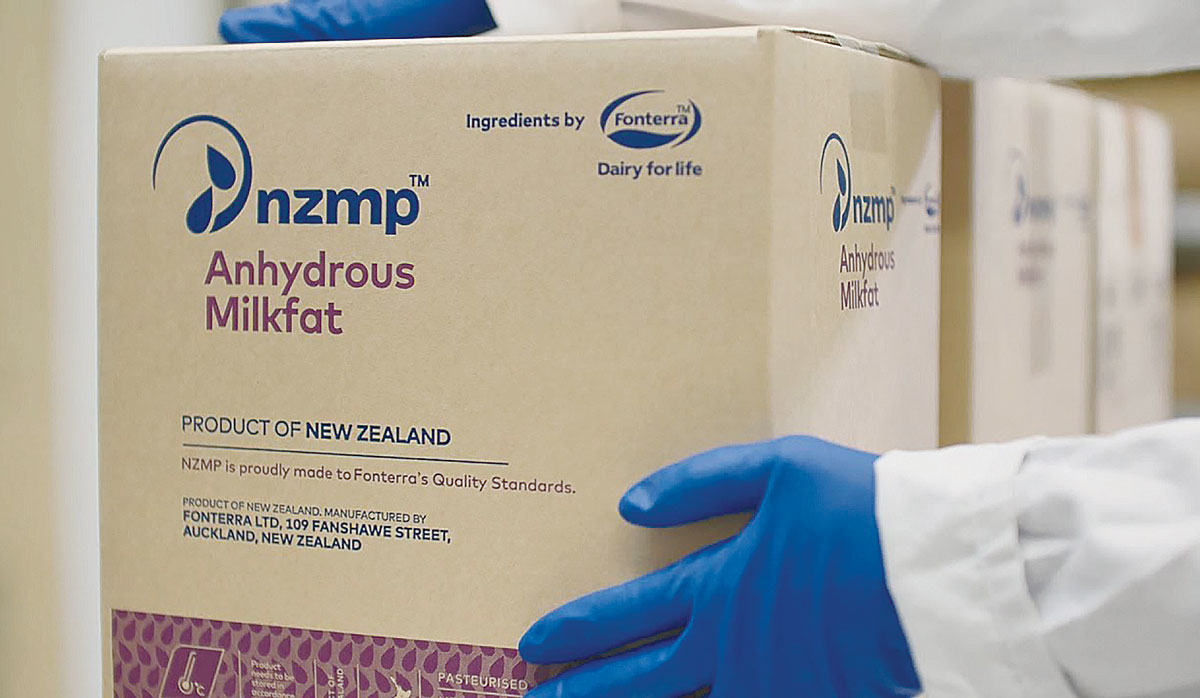Glut in global milk supply keeping prices down
The final Global Dairy Trade (GDT) auction has delivered bad news for dairy farmers.
August could be a crucial month for the farmgate milk price for this season, according to Rabobank senior agricultural analyst Emma Higgins.
Higgins believes demand for milk products and prices on the Global Dairy Trade (GDT) auctions next month will set the tone for the season.
Last week's GDT auction saw a slight lift in the price index after a 6.9% slump the previous auction.
Whole milk powder prices dropped 1.6% to US$3,142/metric tonne last week. However, fat products - butter, cheddar and anhydrous milk fat - saw price increases.
Higgins says right now increased volumes of product are being put on the GDT auctions, coinciding with softer demand, and that has been driving down prices.
She believes this trend will continue as the flow of NZ milk reaches its peak around August, with larg volumes of dairy products coming up for sale on that platform. She says it will be interesting to see what demand there will be for these products.
"What we will need to see over the coming auctions is steady demand and also stable commodity prices through this period of time in order to underpin prices," she says.
She says the August period is critical because of the weighting that prices in this period have in calculations that set the farmgate milk price. She says a lot of this extra product is being absorbed by Southeast Asia and the Middle East buyers while conversely China has been taking less dairy than we have seen in other years.
"So it's really the strength of some of these other markets that will be the test to see how strong the demand is and that will flow into commodity prices which impacts on the farmgate milk price," she says.
 |
|---|
|
'Fat' products like butter and anhydrous milk fat saw price increases in last week's Global Dairy Trade auction. |
China At Play
According to Emma Higgins, China is going to import less dairy products this season than it did a year ago.
She says this is a theme that's played out for the last couple of years and is a real challenge for NZ because what China does heavily influence what happens on the GDT platform.
Higgins says China's reduced demand for dairy comes as no surprise. What we are seeing is the practical application of Chinese government policies instigated back in 2018. She says there was a real concerted effort from the Chinese dairy industry and their government policies to increase their milk production. Also, supportive policies around genetics and feed have played a role in this.
"What we are seeing now is the fruits of these efforts impacting on weaker demand for NZ product," she says.
But some good news is that the growth of Chinese milk supply has slowed in the past year. But Higgins says there is still additional milk in China and demand there is still "muted" compared with what it was historically.
On the home front, Rabobank held the view that milk production in NZ would lift this season, compared with last season when weather events curtailed production.
Higgins says so far this season the weather has been kind, but warns that NIWA is saying there is a risk of another La Nina weather system coming later in the year. She says the previous La Nina system brought rain to many major dairying regions and the bank is in process of reviewing its forecast in the light of this.
Waikato dairy farmer Neil Bateup, made a companion of the New Zealand Order of Merit (CNZM) in the New Year 2026 Honours list, says he’s grateful for the award.
Another Australian state has given the green light to virtual fencing, opening another market for Kiwi company Halter.
Farmer interest continues to grow as a Massey University research project to determine the benefits or otherwise of the self-shedding Wiltshire sheep is underway. The project is five years in and has two more years to go. It was done mainly in the light of low wool prices and the cost of shearing. Peter Burke recently went along to the annual field day held Massey's Riverside farm in the Wairarapa.
Applications are now open for the 2026 NZI Rural Women Business Awards, set to be held at Parliament on 23 July.
Ravensdown has announced a collaboration with Kiwi icon, Footrot Flats in an effort to bring humour, heart, and connection to the forefront of the farming sector.
Forest & Bird's Kiwi Conservation Club is inviting New Zealanders of all ages to embrace the outdoors with its Summer Adventure Challenges.